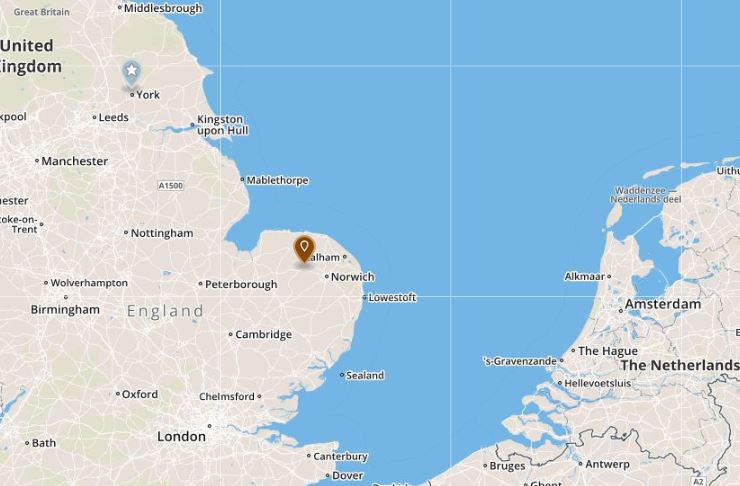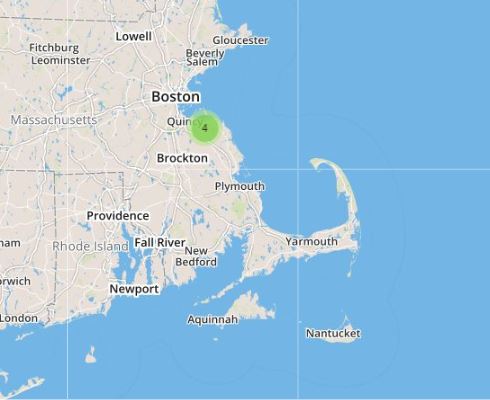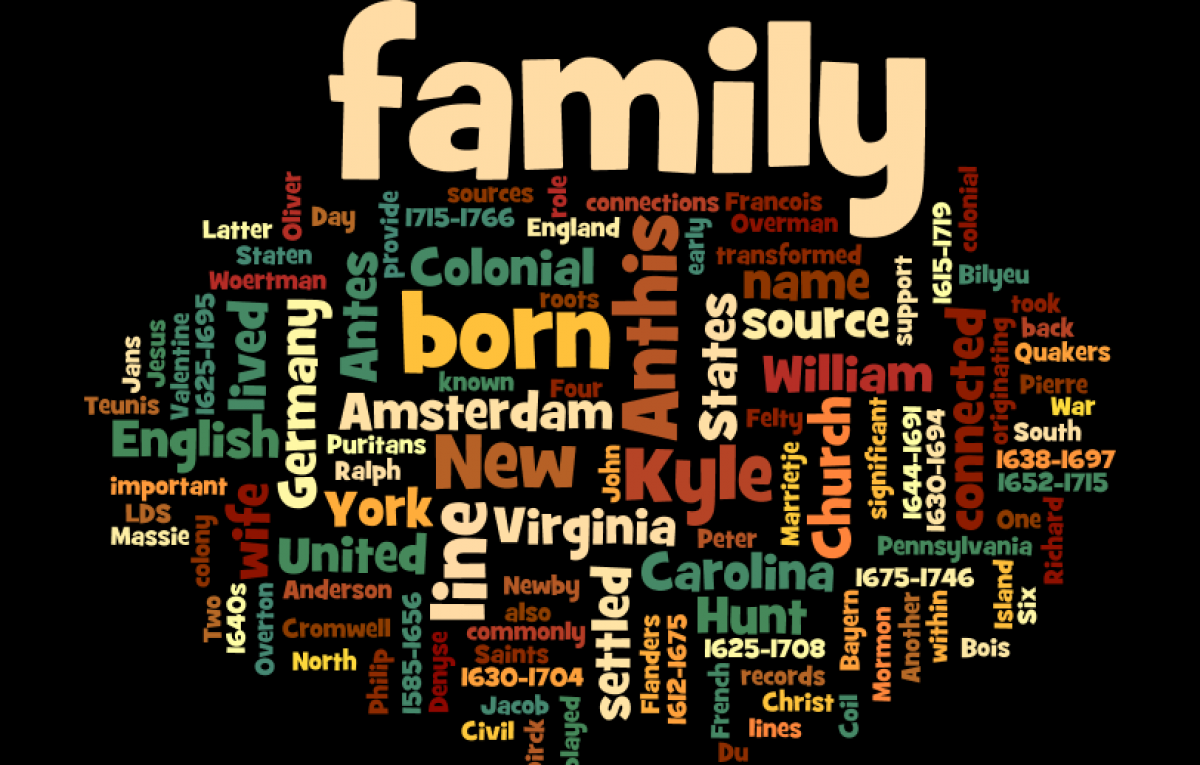Today is the anniversary of the birth of my 8th great-grandfather Abraham Ripley (1624-1683). Abraham was the first of four children born to William and Amia Emotte Jackson Ripley in Hingham, England. William had been married once before – to Katherine Elizabeth Banks, with whom he had three children before Katherine died. Amia died in 1630, and William brought his children – Abraham, his half-brother John, and daughters Janeta and Sarah – to Massachusetts on board the ship Deliverance in 1638.
William was a freeman and property owner in Hingham, Massachusetts, in the late 1630s.
Abraham married Mary Farnsworth in 1656. Mary’s parents, Joseph and Elizabeth Mason Farnsworth (with their daughter Elizabeth), came to Dorchester, Massachusetts, in 1635. This is where Mary was born in 1647. Abraham and Mary had a really large family (if the records I have found are to be believed) – 14 children over the space of 25 years, between 1657 and 1682. I am descended from their sixth child, Joseph Ripley, who is my 7th great-grandfather – but also through their 3rd child, Martha, who married Thomas Jenkins. Their great-granddaughter, Martha Jenkins, married John Thomas Hunt in North Carolina in 1781. Martha’s great-grand-daughter Matilda Starnater married John Anthis in Indiana in 1845. So Abraham is my 8th great-grandfather through his son Joseph and my 7th great-grandfather through his daughter Martha.
Abraham died in Hingham, Massachusetts, in 1683. I don’t know where he is buried.
I connect to Abraham through both my Anthis and my Arnold family lines.


